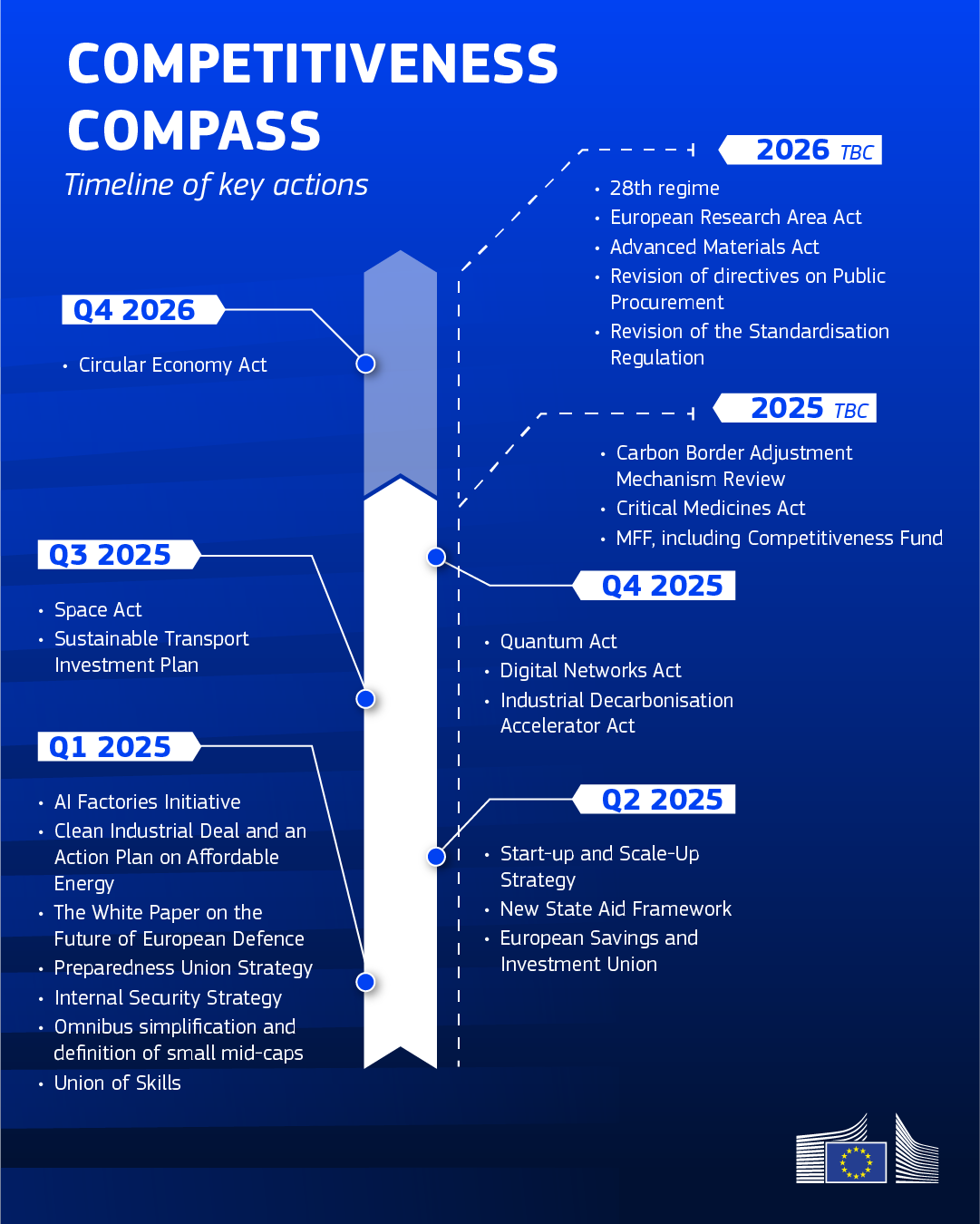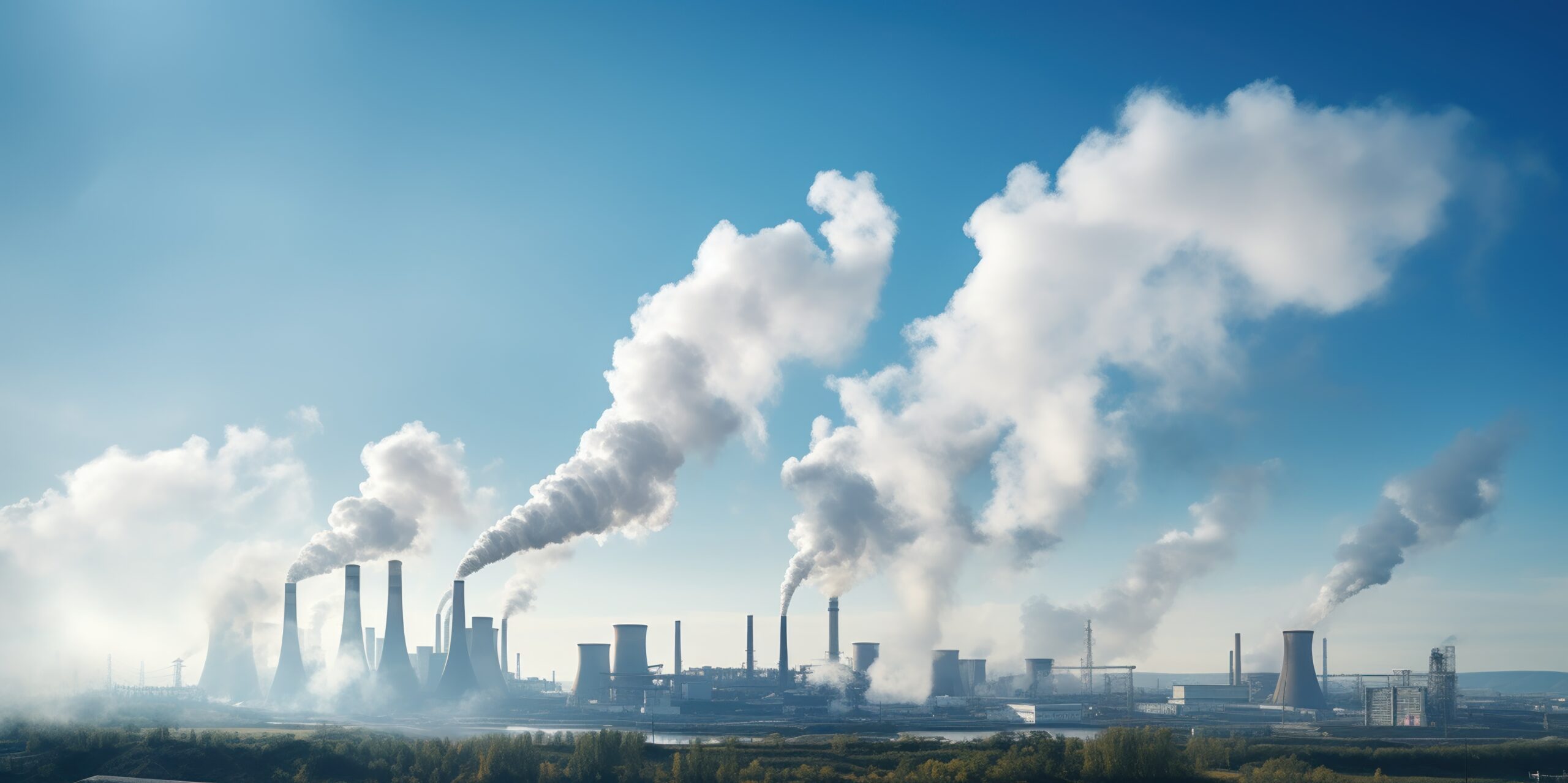Setting a course for sustainable innovation: a compass to guide the European Union towards a low-carbon, competitive future

‘An EU compass for regaining competitiveness and ensuring sustainable prosperity’: published on 29 January 2025, this strategy aims to outline the European Commission’s priorities for the next five years. This roadmap follows on from Mario Draghi’s report on European competitiveness, published last September. It takes up the recommendations made by the former President of the European Central Bank and highlights three ‘transformation imperatives’ for the European Union:
- Closing the innovation gap : The EU is encouraged to re-launch a virtuous cycle of innovation by supporting start-ups, enabling companies to expand, improving access to venture capital and promoting collaboration between universities and businesses. With this in mind, investment in research and development, support for cutting-edge technologies and better implementation of innovation in the economy are presented as essential to making the European Union more innovative.
- A joint roadmap for decarbonisation and competitiveness : The EU needs to address the cost and volatility of energy, accelerate the low-carbon energy transition and promote circular business models. These recommendations involve creating a framework conducive to decarbonised production, supporting energy-intensive sectors in their transition process and promoting sustainable transport.
- Reduce excessive dependencies and enhance security : The EU must integrate security considerations into its economic policies, reduce dependence on monopoly suppliers and address unfair competition. Diversification of supply chains, development of partnerships, use of trade defence instruments and strengthening the defence industry could reduce these vulnerabilities.
The aim of this plan, which jointly addresses the challenges of decarbonisation and competitiveness, is to pave the way for a decarbonised European economy by 2050. Aligning economic and climate objectives and policies could boost competitiveness, thereby offering greater certainty and predictability to businesses and investors. By integrating decarbonisation policies into industrial, economic and trade policies, Europe can strengthen its leading position in the sectors of decarbonised production and circular economic models. With this in mind, the ambition of the next Clean Industrial Deal is simple: to maintain the EU as an attractive location for manufacturing, including for energy-intensive industries.
The EU must also resolve the issue of energy costs and volatility, which are penalising European businesses and households. This situation is partly caused by Europe’s dependence on fossil fuel imports, exacerbated since 2022 and the Russian-Ukrainian conflict. To move towards energy autonomy, the EU needs to accelerate its low-carbon energy transition, promoting electrification and reducing inefficiencies in the energy market. The future energy action plan (scheduled for 2026) should help to meet these challenges by facilitating access to low-cost energy and modernising transmission and storage infrastructures.
To encourage decarbonised and circular production, the EU wants to create preferred markets and incentive policies to reward early movers. To achieve this, measures will be put in place to encourage demand for low-carbon products, as well as financial incentives and long-term contracts. The European Commission will also introduce a flexible and simplified State aid framework to support industries in their transition, while taking care to avoid market distortions. Specific action plans for key sectors such as steel and chemicals, which are particularly vulnerable during this transition, will be drawn up to meet their investment needs.
To ensure the competitiveness of the European automotive sector, a strategic dialogue has been launched to address the challenges of innovation, energy transition and global competitiveness. Initiatives will be put in place to support innovation in electric vehicles and charging, while maintaining ambitious CO2 standards. In addition, an investment plan for sustainable transport will aim to support the development of recharging infrastructures and the production of low-carbon fuels.
Finally, the EU also intends to promote the circular economy, a source of decarbonisation and competitiveness. The refurbishment market, currently worth €31 billion, could reach €100 billion by 2030, creating new jobs. Circular economy regulations are expected to encourage investment in recycling infrastructure and the substitution of virgin materials, while reducing landfill and incineration of used raw materials. This framework will be complemented by eco-design requirements for essential products, to support the transition to a circular and sustainable economy.
More news News


